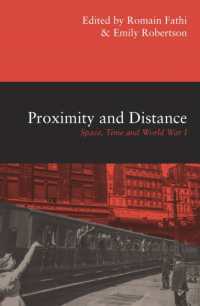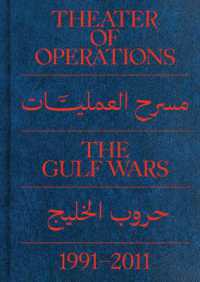Full Description
To many readers the book of Ezekiel is a hopeless riddle. However, if we took the time to study it, we would discover that despite the strangeness of the man and his utterances this is the most clearly organized of the major prophetic books. If we persisted, we would also discover that, from a rhetorical perspective, this priestly prophet knew his audience; he recognized in Judah's rebellion against YHWH the underlying cause of the divine fury that resulted in the exile of his people and the fall of Jerusalem to the Babylonians in 586 BCE. But he also recognized that YHWH's judgment could not be the last word. Because his covenant was eternal and irrevocable he looked forward to a day of spiritual renewal and national restoration. This is the second of two volumes of Block's essays on the book of Ezekiel. The essays in this volume explore the theme of Kingship in Ezekiel - both his assessment of Judah's historical kings and his hope for a restored Davidic King/Prince - and the mysterious visions concerning Gog's attack on restored Israel (Ezek 38-39) and the new temple (40-48). Block brings to bear decades of study of the book to open up fresh insights on the ancient text.
Contents
List of Illustrations
Preface
Acknowledgements
Credits
List of Abbreviations
1 Zion Theology in the Book of Ezekiel
2 Transformation of Royal Ideology in Ezekiel
3 The Tender Cedar Sprig: Ezekiel on Jehoiachin
4 Bringing Back David: Ezekiel's Messianic Hope
5 Gog and Magog in Ezekiel's Eschatological Vision
6 Gog in Prophetic Tradition: A New Look at Ezekiel 38:17
7 Gog and the Pouring Out of the Spirit: Reflections on Ezekiel 39:21-29
8 Envisioning the Good News: Ten Interpretive Keys to Ezekiel's Final Vision
9 Guarding the Glory of YHWH: Ezekiel's Geography of Sacred Space
Bibliography
Index of Modern Authors
Index of Selected Subjects
Index of Scripture References







